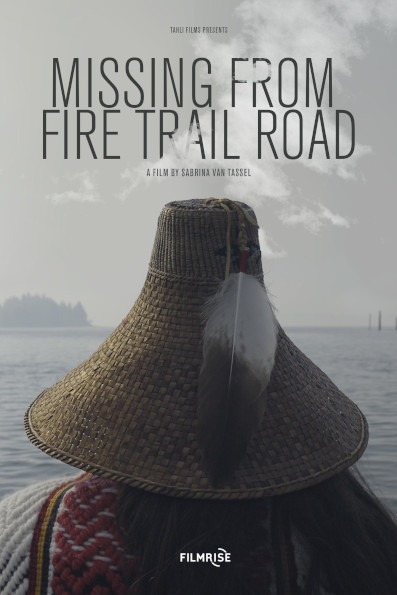Eye For Film >> Movies >> Missing From Fire Trail Road (2024) Film Review
Missing From Fire Trail Road
Reviewed by: Jennie Kermode

On 25 October, US president Joe Biden issued a formal apology, on behalf of his nation, for the historical practice of forcibly sending Native American children to boarding schools in which their cultures were aggressively repressed, many were sexually abused and at least 973 died. Though it cannot be more than a small gesture at this remove, it has been welcomed by survivors and their descendants. Nevertheless, the damage done by this and similar genocidal policies continues to reverberate through communities. One way it manifests is in the number of Native women and girls who simply disappear.
At the time when this film was shot, Mary Ellen Johnson-Davis had been missing for two years. A resident of the Tulalip reservation near Seattle, she was last seen on Fire Trail Road, trying to hitch a ride. Did somebody pick her up in a vehicle and abduct her? It wouldn’t be the first such occurence. Did her white husband, known to be abusive, murder her? Or was she victimised by somebody else who saw her, psychologically scarred by what was done to her in childhood and dependent on drugs and alcohol, as an easy target? With the investigation at a standstill, her sisters are determined to find out the truth, and documentarian Sabrina Van Tassel follows them in their quest.

In Tulalip, there are posters about missing women everywhere. “It is like predators know that this is a lawless land. People use the reservation as a dumping ground for the bodies,” we are told. The third leading cause of death for Native women is homicide; it wasn’t until 2013 that the Violence Against Women Act was extended to provide federal protection to Native women abused by non-residents on tribal lands. Even now, tribal law enforcement have no powers to extradite Mary Ellen’s husband, who moved to California just two months after she vanished, and changed his phone number. FBI spokesman Richard A Collodi says that he cannot comment because the disappearance is the subject of an open investigation, but the sisters, having heard nothing, cannot bear to just sit and look at the landscape around them, wondering if Mary Ellen is under the waters of the lake of out in the woods somewhere.
To investigate a crime like this, and do it justice, requires going back much further in time than that afternoon of 25 November, 2020. The film examines records from boarding schools, and they look depressingly like those from Australia, Ireland, Finland and other places where such methods were used to try to destroy inconvenient segments of the population. The same diagnoses turn up again and again to explain sudden deaths, the very uniformity of them apt to raise suspicion had anyone with power been willing to intervene. Those who remember make the same complaints: beatings for speaking in their native tongues, cultural signifiers like long hair abruptly removed. And then there was the foster system.
Mary Ellen was one of those taken from her loving family to be fostered out to white people. Like most, she was abused, and she eventually returned, looking for her roots, deeply damaged by her experiences. On the face of it she was more fortunate than most, because she received financial compensation from the government. It wasn’t remotely commensurate with her suffering, but it might have been enough to give her a better future, if not for the fact that – her sisters allege – her husband stole it. Furthermore, whether he was responsible or not, Mary Ellen having money might ultimately have led to her death.
Layering together past and present, Van Tassel weaves a rich tapestry which illustrates the multiple elements of complicity in Mary Ellen’s disappearance. At the same time, through the sisters and their children, we get to know something of who the missing woman was in life, and we see the impact that her absence has on the family and community. This helps to emphasise the folly of writing people off because they are addicts, of assuming that they have no positive role to play in society. As wider issues around missing indigenous women are discussed, Mary Ellen becomes an emotional point of contact for newcomers to the subject, more impactful because she doesn’t fit society’s idea of an innocent, because she emerges as complicated and messy and real, as deserving of life and hope not to salve others’ consciences but simply as a human being.
Reviewed on: 26 Oct 2024
















